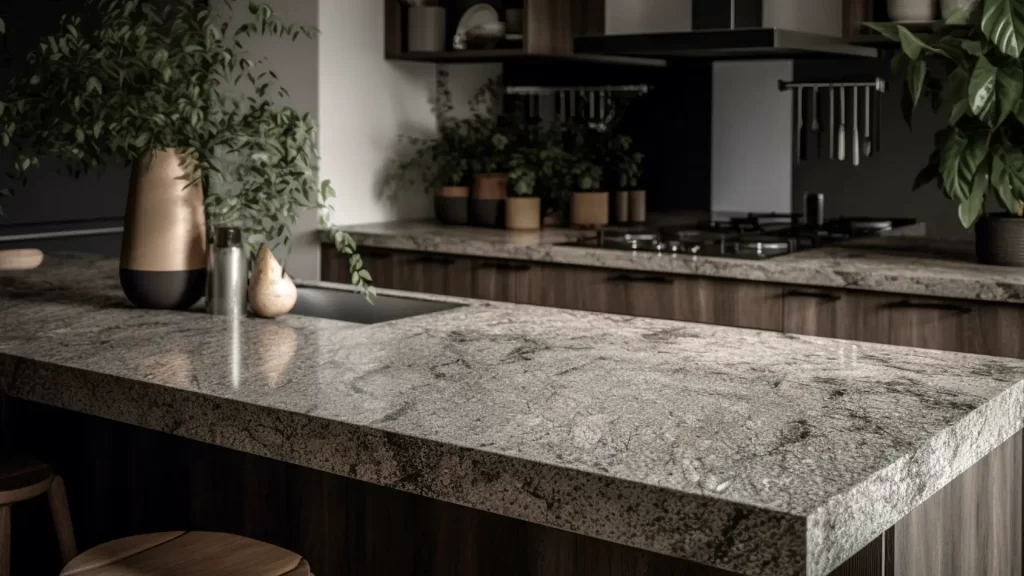Quartz worktops are engineered stone surfaces made by combining natural quartz with resins and pigments. This creates a non-porous, durable surface that is resistant to stains, scratches, and bacteria. However, despite their resilience, improper cleaning techniques can dull the surface or cause damage over time.
Daily Cleaning Routine
To keep your quartz worktops looking their best, it’s important to establish a daily cleaning routine. Here’s what you need to do:
- Wipe Down Surfaces: Use a soft, damp cloth or sponge to wipe down the surfaces daily. This helps to remove dust, crumbs, and spills before they have a chance to harden or stain.
- Mild Detergent: For regular cleaning, a mild dish soap mixed with warm water works well. Avoid using highly acidic or alkaline cleaners, as these can damage the surface over time.
- Rinse and Dry: After cleaning with soap, rinse the surface with clean water to remove any soap residue. Dry the worktop with a soft, dry cloth to prevent water spots and streaks.
Dealing with Spills and Stains
Although quartz is resistant to staining, it’s still important to address spills as soon as they happen. Here’s how to handle different types of spills:
- General Spills: For most spills, simply wipe them up with a damp cloth. If the spill has dried, use a plastic scraper to gently remove it before wiping it down.
- Sticky Substances: For sticky or dried substances, use a gentle household cleaner and a non-abrasive sponge to remove them. Avoid using steel wool or other abrasive materials.
- Grease Stains: For grease stains, use a degreasing cleaner that is safe for quartz surfaces. Apply the cleaner to a cloth rather than directly onto the worktop to avoid oversaturation.
Preventing Damage
While quartz worktops are durable, they are not indestructible. Here are some tips to prevent damage:
- Avoid Harsh Chemicals: Do not use bleach, oven cleaners, or other harsh chemicals on your quartz worktops. These can break down the bonds between the resin and the quartz, leading to discolouration and damage.
- Use Cutting Boards: Always use a cutting board when preparing food. Cutting directly on the quartz surface can cause scratches and dull the finish over time.
- Protect from Heat: Quartz is heat resistant but not heat proof. Use trivets or heat pads under hot pots and pans to prevent thermal shock, which can cause cracks or discolouration.
- Avoid Excessive Weight: Do not sit or stand on your quartz worktops. Excessive weight can cause cracking or damage to the underlying cabinets.
Deep Cleaning
Occasionally, your quartz worktops may require a deeper clean to remove tougher stains or build-up. Here’s how to do it:
- Specialised Cleaner: Use a specialised quartz cleaner or a glass cleaner for a deeper clean. Spray the cleaner onto the surface and let it sit for a few minutes before wiping it away with a soft cloth.
- Non-Abrasive Scrub: For tougher stains, use a non-abrasive scrub pad and a gentle cleaner. Scrub in a circular motion to avoid leaving scratch marks.
- Rinse Thoroughly: Always rinse thoroughly with water after using any cleaner to remove all residues.
Addressing Stubborn Stains
For stubborn stains that don’t come off with regular cleaning methods, you can try the following:
- Baking Soda Paste: Make a paste with baking soda and water. Apply the paste to the stain and let it sit for 10-15 minutes before gently scrubbing with a non-abrasive pad.
- Isopropyl Alcohol: For ink or permanent marker stains, dampen a cloth with isopropyl alcohol and gently rub the stain. Rinse with water and dry thoroughly.
- Hydrogen Peroxide: For organic stains like coffee or tea, a mixture of hydrogen peroxide and water can be effective. Apply the mixture to the stain, let it sit for a few minutes, and then rinse off.
Regular Maintenance Tips
To ensure your quartz worktops remain in pristine condition, follow these regular maintenance tips:
- Sealing: Unlike natural stone, quartz does not require sealing. The resin in the quartz mixture provides a non-porous surface that doesn’t need extra protection.
- Polishing: If your quartz worktop starts to look dull, you can use a quartz polish to restore its shine. Follow the manufacturer’s instructions for the best results.
- Routine Inspection: Regularly inspect your worktops for any signs of damage or wear. Addressing small issues early can prevent more significant problems down the line.
Conclusion
Cleaning and maintaining your quartz worktops doesn’t have to be a daunting task. With the right techniques and a bit of regular care, you can keep your worktops looking as good as new for years to come. Remember to use mild cleaners, avoid harsh chemicals, and address spills and stains promptly. By following these guidelines, your quartz worktops will continue to be a beautiful and functional part of your home.

